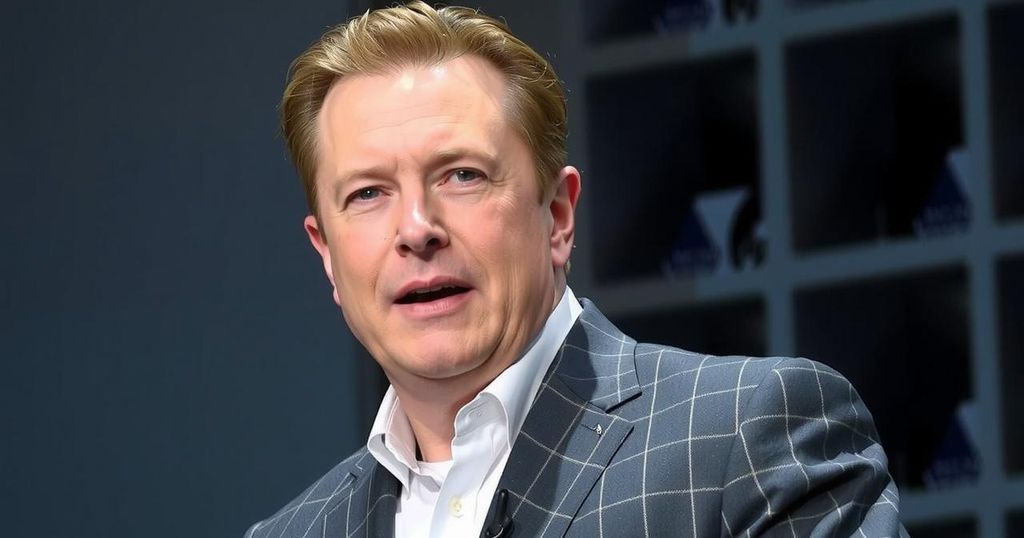German officials have accused Elon Musk of trying to sway the upcoming parliamentary elections by endorsing the far-right AfD party. His remarks have sparked substantial criticism from government representatives, who view them as foreign interference at a crucial electoral time. Musk’s op-ed and social media endorsements have further intensified the discussions around the party’s reputation and its impact on German politics.
On Monday, German officials accused Elon Musk of attempting to interfere with Germany’s upcoming parliamentary elections by endorsing the far-right Alternative for Germany (AfD) party. This accusation follows Musk’s recent social media posts and an op-ed where he praised the AfD for its fiscal policies. His support for the party, which has been criticized for its extremist ties, has provoked backlash from the German government as elections approach.
Musk has described the AfD as a party capable of bringing fiscal responsibility to Germany and defended it against claims of radicalism. His comments have coincided with sharp criticism directed at German Chancellor Olaf Scholz. During a press briefing, government spokesperson Christiane Hoffmann remarked, “It is indeed the case that Elon Musk is trying to influence the federal election.” Despite the outcry, Musk has maintained his position, claiming that the mainstream parties have failed the nation.
In an op-ed for the German publication Welt am Sonntag, Musk rejected the characterization of the AfD as extremist, referencing the party leader’s same-sex partnership as evidence against this claim. He argued that the group’s policies could lead to economic growth and innovation, calling them “the last spark of hope for this country.” His involvement has elicited strong reactions from both U.S. and German officials, with health minister Karl Lauterbach labeling Musk’s endorsement as “undignified and highly problematic.”
The AfD has been excluded from coalitions by other mainstream parties due to its controversial past, including allegations of neo-Nazi affiliations. Musk’s continued advocacy for the AfD, despite the backlash, adds a complex layer to the electoral landscape in Germany, highlighting tensions between foreign influence and national sovereignty in democratic processes.
The situation surrounding Elon Musk’s endorsements of the Alternative for Germany (AfD) party sheds light on the delicate nature of political influence and communications in electoral contexts. Germany is about to hold snap parliamentary elections, and the timing of Musk’s remarks raises questions about the impact of foreign entities in domestic politics. The rise of far-right populism in Europe presents additional concerns about extremist ideologies gaining traction. Musk’s high-profile status makes his opinions particularly impactful, prompting reactions from various political factions, both domestically and internationally, and illustrating the challenges facing the German political landscape.
In summary, Elon Musk’s recent support for the Alternative for Germany party has prompted significant backlash from the German government and various political figures. His attempts to influence the upcoming parliamentary elections signify the complex interplay between global personalities and national politics. As Germany prepares for a crucial electoral moment, the implications of Musk’s statements highlight ongoing concerns about the influence of foreign actors in the democratic process, particularly when associated with controversial groups like the AfD.
Original Source: www.foxnews.com






